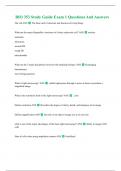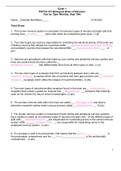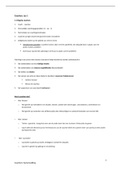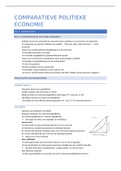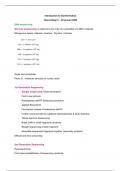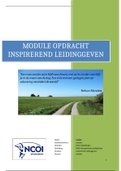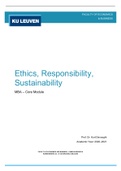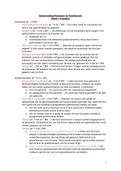Exam (elaborations)
BIO 353 Study Guide Exam 1 Questions And Answers 2024/2025 Tests
- Course
- Institution
BIO 353 Study Guide Exam 1 Questions And Answers 2024/2025 Tests The cell ANS The basic unit of structure and function in living things What are the major Organelles/ structures of a basic eukaryotic cell? ANS nucleus nucleolus ribosomes smooth ER rough ER mitochondria What are the 3 ...
[Show more]
